Medical
Trouble with China-made Covid-19 Testing Kits: PCR vs. Antigen Testing
As of March 26, 102 Chinese firms have been granted access to the European market, according to Song Haibo, Chairman of the China Association of In Vitro Diagnostics, compared with just one being licensed in the US. However, just 13 companies have been licensed to sell Polymerase Chain Reaction (PCR) testing kits in China, with eight selling the simpler antibody version. The more complex PCR test tries to find genetic sequences of the virus by deploying primers – chemicals or reagents which are added to test if a reaction occurs – that attach to the targeted genetic sequences. The “rapid testing” is carried out with a nasal swab, with the subject staying in their car. The sample is then quickly analysed for antigens that would suggest the virus is present. Leo Poon, head of public health laboratory sciences at Hong Kong University, said PCR testing is “much preferable” to antibody or antigen testing, which can only detect coronavirus once the patient has been infected for at least 10 days. However, PCR tests are far more complex to develop and manufacture, and with an acute global shortage of quality testing equipment, countries around the world are stocking up on the simpler format.
How 3D printing could save lives in the coronavirus outbreak
Plugging critical gaps in the supply is necessary to ensure that face shields, nasal swabs, ventilators, and other products continue to reach hospitals in the next few weeks, when caseloads are likely to skyrocket. 3D printing has emerged as a stopgap measure, and an imperfect one at that. In recent days, Carbon of Redwood City, California, has collaborated with Verily, Alphabet’s life sciences business, to design face shields. The team has already produced prototypes and sent them for evaluation to several San Francisco Bay Area hospitals, Forbes reported. Prisma Health, a major health-care system in South Carolina, announced it had secured emergency authorization from the FDA for 3D-printed splitter tubing, called VESper that could allow one ventilator to help up to four patients with critical respiratory problems when supplies of the machines run tight. Formlabs secured swift FDA approval to produce nasal swabs at its Ohio facility only because it was already permitted to make dental products that go into people’s mouths, like 3D-printed night guards and crowns.
Strategic
Trump Extends Social Distancing Guidelines through End of April
President Trump retreated on March 29 from his desire to relax coronavirus guidelines by Easter, announcing instead that all Americans must continue to avoid nonessential travel, going to work, eating at bars and restaurants, or gathering in groups of more than 10 for at least another month and perhaps until June.
China’s effort to end coronavirus lockdown meets local opposition
Beijing’s efforts to get people back to work in China have been met with widespread opposition from citizens who do not trust government assurances that the virus outbreak is under control. A strict lockdown of the Hubei province ended on March 25, but many of its 6 million residents who work in other parts of China are finding it impossible to leave as other local authorities defy central government orders and refuse to lift travel restrictions. On March 28, opposition erupted into violence as thousands of Hubei migrant workers tried to cross over a bridge linking Huangmei in Hubei to Jiujiang in neighbouring Jiangxi province. Video footage posted online showed police officers from Jiujiang and Huangmei wrestling with each other and hundreds of people attacking police and overturning their vehicles.
Is Trump's second letter to NK leader for dialogue or status quo?
US President Donald Trump's personal letter to North Korean leader Kim Jong-un to offer cooperation in fighting the coronavirus is raising speculation that Washington may be seeking to reopen nuclear disarmament dialogue with Pyongyang. Since the collapse of the Hanoi summit between the two leaders in February 2019, diplomacy between the two countries has stalled. The North has carried out a series of short-range missile tests, the latest of which occurred on March 28. "We regard it as a good judgment and proper action for the US President to make efforts to keep the good relations he had with our Chairman by sending a personal letter again at a time as now when big difficulties and challenges lie in the way of developing the bilateral relations, and think that this should be highly estimated," Kim Yo-jong, the North Korean leader's sister and first Vice Department Director of the Central Committee of the ruling Workers' Party, said in a statement released on March 29.This is the second time that Trump has written to Kim this year following a birthday message in January.
Downing Street says China faces a 'reckoning' over their handling of coronavirus and risks becoming a 'pariah state' as Boris Johnson faces pressure to scrap the Huawei deal
Ministers and senior Downing Street officials said the Communist state now faces a ‘reckoning’ over its handling of the outbreak and risks becoming a ‘pariah state’.They are furious over China’s campaign of misinformation, attempts to exploit the pandemic for economic gain and atrocious animal rights record. The Prime Minister now faces Cabinet calls to reverse his decision to let controversial Chinese firm Huawei build large parts of Britain’s new 5G telecoms network. Writing for The Mail on March 29, former Tory Party leader Iain Duncan Smith says: ‘For too long, nations have lamely kow-towed to China in the desperate hope of winning trade deals. But once we get clear of this terrible pandemic, it is imperative that we all rethink that relationship and put it on a much more balanced and honest basis.’
Africa Is Two to Three Weeks Away From Height of Virus Storm
Africa is two to three weeks away from the worst of the coronavirus storm and needs an emergency economic stimulus of $100 billion to bolster preventative measures and support its fragile healthcare systems, according to the United Nations Economic Commission for Africa. A lack of resources and staff means authorities must work fast to limit the spread of the disease on a continent where hospitals have an average of just 1.8 beds per 1,000 people, UNECA data show. While Africa accounts for 1% of global health expenditure, it carries 23% of the disease burden; including hundreds of thousands of deaths each year from malaria, HIV/Aids and tuberculosis.There are more than 3,000 Covid-19 infections in 46 countries across the continent, according to the Addis Ababa-based Africa Centres for Disease Control and Prevention.
Coronavirus outbreak compounds Iraq’s perfect storm of crises
As Iraq faces several severe crises simultaneously, some see the makings of a perfect storm that could prove too much for Iraq’s dysfunctional government to handle. An unchecked outbreak of the coronavirus disease (COVID-19) could prove the proverbial last straw for a country grappling with political turmoil, dwindling oil revenues, deteriorating government services and geopolitical skirmishing. “Iraq is on the cusp of melting down,” Nicholas Heras, the Middle East Portfolio Manager at The Institute for the Study of War, told Arab News. “The Iraqi state institutions were already collapsing before the fall in oil prices, and Iraq’s health infrastructure is too much in shambles to handle a big surge in COVID-19 cases.” The country had reported 506 confirmed cases and 42 deaths as of March 29.
Report of Urns Stacked at Wuhan Funeral Homes Raises Questions about the Real Coronavirus Death Toll in China
According to official Chinese government data, 50,006 people were infected with the Covid-19 virus in Wuhan with 2,535 dying from the disease. However, Chinese investigative outlet Caixin reports that when mortuaries opened back up this week in the Hubei capital, people had to wait in line for as long as five hours to receive the remains of their loved ones lost during the epidemic. One photo published by Caixin shows a truck loaded with 2,500 urns arriving at the Hankou Mortuary. The driver said that he had delivered the same amount to the mortuary the day before. When reporters at Bloomberg made calls to the funeral homes to check on the number of urns waiting to be collected, the mortuaries said that they either did not have that data or were not authorized to disclose it.
White House Airlifts Medical Supplies from China in Coronavirus Fight
A commercial aircraft carrying 80 tons of gloves, masks, gowns and other medical supplies from Shanghai arrived in New York on March 29 was facilitated by a public private partnership led by Jared Kushner with major health care distributors like McKesson Corporation, Cardinal Health, Owens & Minor, Medline and Henry Schein. Representatives from those companies attended a meeting at the White House with President Trump on the same day, a White House spokesman said. The White House is arranging for air transport to help expedite the shipping of personal protective equipment purchased by these companies overseas, Lizzie Litzow, a spokeswoman for the Federal Emergency Management Agency said, adding that both FEMA and the State Department were helping support the effort. Not all the supplies will come from China. Litzow said the United States was working with manufacturers from Thailand, Malaysia, Vietnam, Taiwan, India, Honduras and Mexico.
Will Germans trade privacy for coronavirus protection?
Should Germany concentrate more energy on digital surveillance in the fight against the new coronavirus is being hotly debated in Germany's parliament, the Bundestag, where the federal commissioner for data protection, Ulrich Kelber of the Social Democratic Party (SPD), directly contradicted Health Minister Jens Spahn of Chancellor Angela Merkel's Christian Democratic Union (CDU). Speaking with the German weekly newspaper Die Zeit, Spahn pointed to South Korea, saying, "We have seen how South Korea, a democratic country, was able to fight the virus using cell phone data." He said that cell phone data helped authorities there to quickly track down people who had come into contact with infected individuals and thus pinpoint potential spreaders. Those affected were requested to enter quarantine. Speaking with DW, Christof Stein, a spokesman for data protection commissioner Kelber, spoke out in opposition to Spahn's view. "We should not let fear blind us to the importance of data protection. If the names of all those infected were to be announced on the radio starting tomorrow, many people would find it disproportionate," Stein said.
Economic
IMF head says global economy now in recession
The head of the International Monetary Fund said on March 27 it is clear that the global economy has now entered a recession that could be as bad as or worse than the 2009 downturn. IMF Managing Director Kristalina Georgieva said the 189-nation lending agency was forecasting a recovery in 2021, saying it could be a “sizable rebound.” But she said this would only occur if nations succeed in containing the coronavirus and limiting the economic damage. “A key concern about a long-lasting impact of the sudden stop of the world economy is the risk of a wave of bankruptcies and layoffs that not only can undermine the recovery but erode the fabric of our societies,” she told reporters at a news conference following a telephone conference with finance officials from the 24 nations that make up the IMF’s policy-setting panel. She said the IMF was updating its economic outlook now and it would be released in a few weeks, allowing the agency more time to assess the economic impacts of the virus.
China Reopens: But Global Demand and Supply Chains remain disrupted
As China reopens its economy after months of lockdown, Apple Inc's iPhone factories are largely up and running. But with the coronavirus pandemic spreading across the world, the urgent question for the company is how many buyers there will be both for current models and the new slate of phones expected in the fall. "No one is talking about manpower or material shortage (in China) anymore. Now everyone is looking at whether demand from US and Europe could keep up," said the person, who has direct knowledge of the matter. "The focus now is the demand from consumers in the US and Europe." The company could also yet face further supply chain problems as countries including Malaysia and Vietnam impose new restrictions to combat the coronavirus. "Things are changing on a day by day basis due to supply chain disruptions, so it is difficult to craft any meaningful comment at the moment about both supply and demand," said an official at one supplier in Malaysia.
Semiconductor industry wants 'essential' status to sustain production with coronavirus
The Semiconductor Industry Association (SIA) has sent letters to President Trump and federal officials urging them to designate semiconductor businesses as “essential” so that industry operations will continue amid state and local coronavirus shutdowns. “We call on governments to specify semiconductor industry operations as ‘essential infrastructure’ and/or ‘essential business’ to allow continuity in operations of an industry that underpins vital sectors of the economy,” the SIA said in a recent report.So far, the industry is on an initial US list of “essential critical infrastructure workers” kept by Homeland Security’s Cyber security and Infrastructure Agency (CISA) but is recognized only by the states of California, Pennsylvania and New York among those businesses that may continue operations. SIA noted that semi designers, fabs and testing facilities in China were allowed to operate non-stop during the COVID-19 outbreak, subject to certain worker safety protocols.
China unexpectedly cuts reverse repo rate by most in five years to support virus-hit economy
China’s central bank unexpectedly cut the rate on reverse repurchase agreements by 20 basis points on March 30, the largest in nearly five years, as authorities stepped up measures to relieve pressure on an economy ravaged by coronavirus pandemic. The People’s Bank of China (PBOC) said on its website that it was lowering the 7-day reverse repo rate to 2.20% from 2.40%. The central bank did not give a reason for the move.
McKinsey boss says that after coronavirus nothing will be the same
Kevin Sneader, global managing partner of the management consulting firm McKinsey & Company in an interview with CNBC, said in respect to what CEOs are presently worried about, “One thing is clear from all the conversations I’ve had: nothing is going to be the same. This is a new normal, a different way of operating.” Previously, the firm has encouraged companies not to automatically assume a worst-case scenario, but Sneader acknowledges that the post-coronavirus economy will likely take another shape, including in the way investors will consider resilience and risk. “Investors are going to look differently, and CEOs are already looking differently,” Sneader said, appearing via video link on CNBC’s Squawk Box. “That’s why we’re not going back to the normal we had before.”As to the immediate concerns being expressed by the consulting firm’s blue-chip clients, Sneader forwards that they’re worried about their employees, their customers, and cash – “in that order”, but doesn’t shy away from the fact that cash is a current major concern for many businesses in the current climate.
Fed Digital Dollars Are Part of Debate over Coronavirus Stimulus
While it may not make it to the finished coronavirus economic stimulus and support package now being weighed in Congress, there is a push from some legislators to give the Federal Reserve a new tool some believe could radically reshape how it conducts monetary policy. At issue are so-called digital dollars and the accounts that would hold them. Separate House and Senate bills propose creating these two things as part of a broader effort to reduce the shock of the economic shutdown related to limiting the spread of the coronavirus. Fed Chairman Jerome Powell has said there are privacy concerns regarding a digital currency offered by the central bank.
For Further Reading:
- SCMP: China ramps up Covid-19 test kit exports amid global shortage, as domestic demand dries up, https://www.scmp.com/economy/china-economy/article/3077314/coronavirus-china-ramps-covid-19-test-kit-exports-amid-global
- MIT Technological Review: How 3D printing could save lives in the coronavirus outbreak, https://www.technologyreview.com/s/615420/3d-printing-coronavirus-covid-19-medical-supplies-devices/
- New York Times: Trump Extends Social Distancing Guidelines Through End of April, https://www.nytimes.com/2020/03/29/us/politics/trump-coronavirus-guidelines.html?action=click&module=Spotlight&pgtype=Homepage
- Financial Times: China’s effort to end coronavirus lockdown meets local opposition, https://www.ft.com/content/96eba8ff-3b99-4e71-8df4-7e4ea70c6869
- Korea Times: Is Trump's second letter to NK leader for dialogue or status quo?,https://www.koreatimes.co.kr/www/nation/2020/03/103_286612.html
- Daily Mail: Downing Street says China faces a 'reckoning' over their handling of coronavirus and risks becoming a 'pariah state' as Boris Johnson faces pressure to scrap the Huawei deal, https://www.dailymail.co.uk/news/article-8163767/Downing-Street-says-China-faces-reckoning-coronavirus.html
- Bloomberg: Africa Is Two to Three Weeks Away From Height of Virus Storm, https://www.bloomberg.com/news/articles/2020-03-29/africa-is-two-to-three-weeks-away-from-height-of-virus-storm
- Arab News: Coronavirus outbreak compounds Iraq’s perfect storm of crises, https://www.arabnews.com/node/1649506/middle-east
- Time: Report of Urns Stacked at Wuhan Funeral Homes Raises Questions About the Real Coronavirus Death Toll in China, https://time.com/5811222/wuhan-coronavirus-death-toll/
- New York Times: White House Airlifts Medical Supplies From China in Coronavirus Fight, https://www.nytimes.com/2020/03/29/business/economy/coronavirus-china-supplies.html
- Deutsche Welle: Will Germans trade privacy for coronavirus protection?,https://www.dw.com/en/will-germans-trade-privacy-for-coronavirus-protection/a-52943225
- ABC News: IMF head says global economy now in recession, https://abcnews.go.com/US/wireStory/imf-head-global-economy-now-recession-69843184
- Asahi Shimbun: Apple’s factories are running, but suppliers wary about iPhone demand, http://www.asahi.com/ajw/articles/13252017
- Semi industry wants 'essential' status to sustain production with coronavirus, https://www.fierceelectronics.com/electronics/semi-industry-wants-essential-status-to-sustain-production-coronavirus
- Reuters: China unexpectedly cuts reverse repo rate by most in five years to support virus-hit economy, https://in.reuters.com/article/health-coronavirus-china-cenbank/china-unexpectedly-cuts-reverse-repo-rate-by-most-in-five-years-to-support-virus-hit-economy-idINKBN21H0AE
- McKinsey boss says that after coronavirus nothing will be the same, https://www.consultancy.asia/news/3080/mckinsey-boss-says-that-after-coronavirus-nothing-will-be-the-same
- WSJ: Fed Digital Dollars Are Part of Debate Over Coronavirus Stimulus, https://www.wsj.com/articles/fed-digital-dollars-are-part-of-debate-over-coronavirus-stimulus-11585085518
Image Source: https://cdn.pixabay.com/photo/2020/03/22/20/54/covid-19-4958543_960_720.png

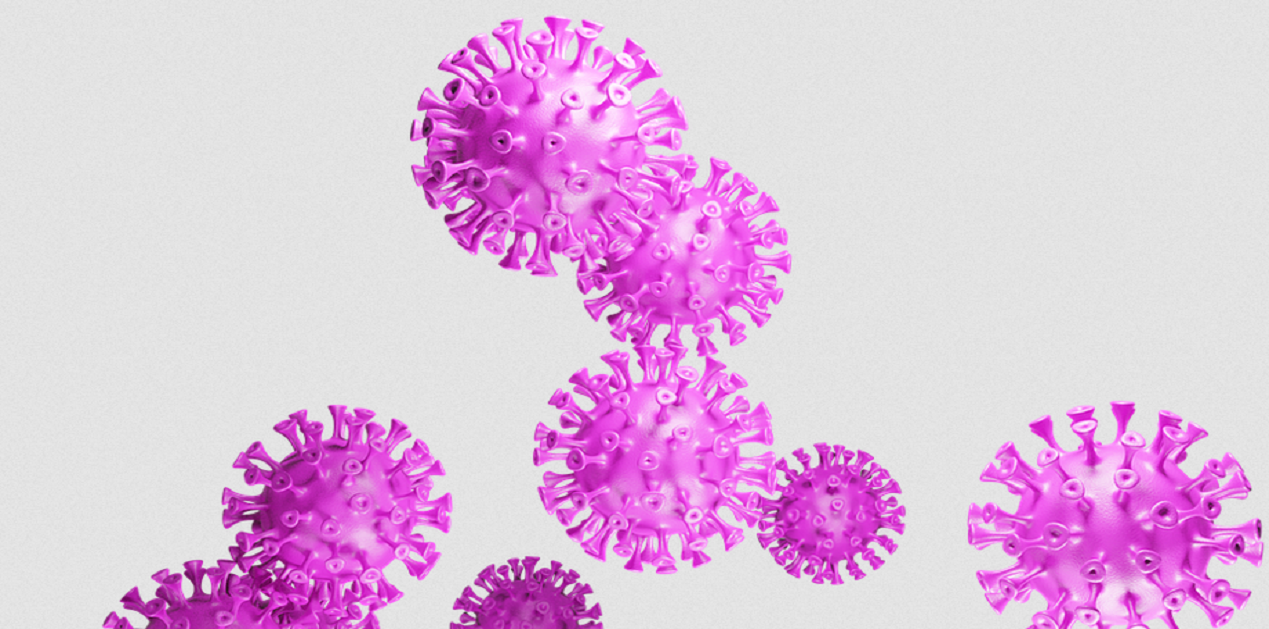

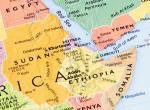
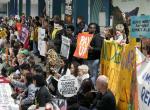
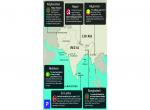
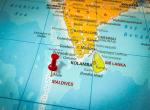

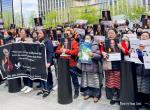


Post new comment